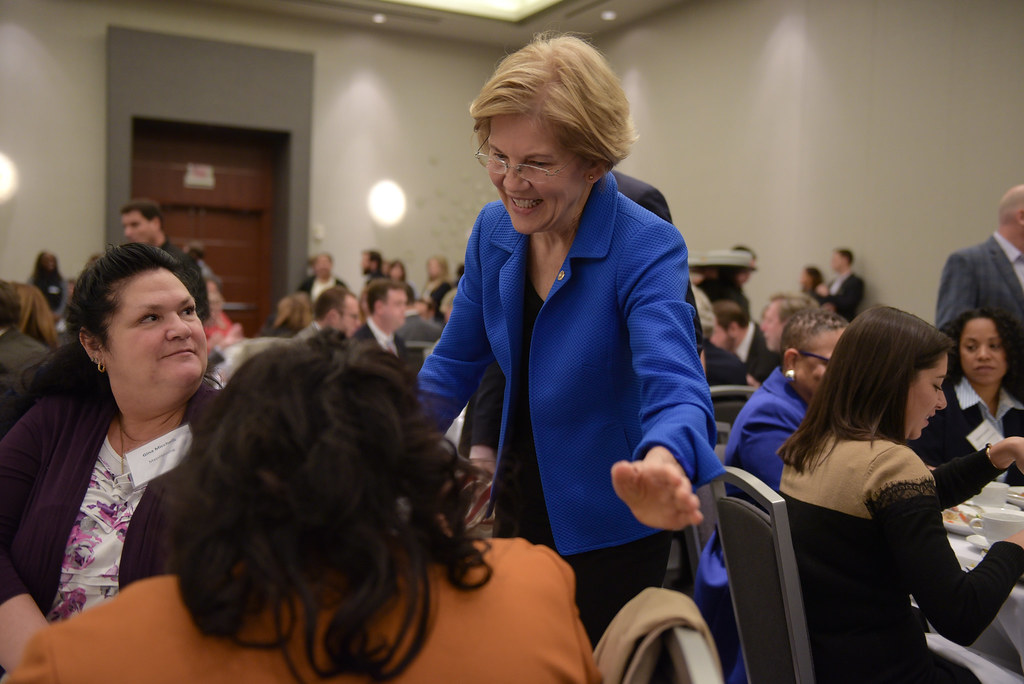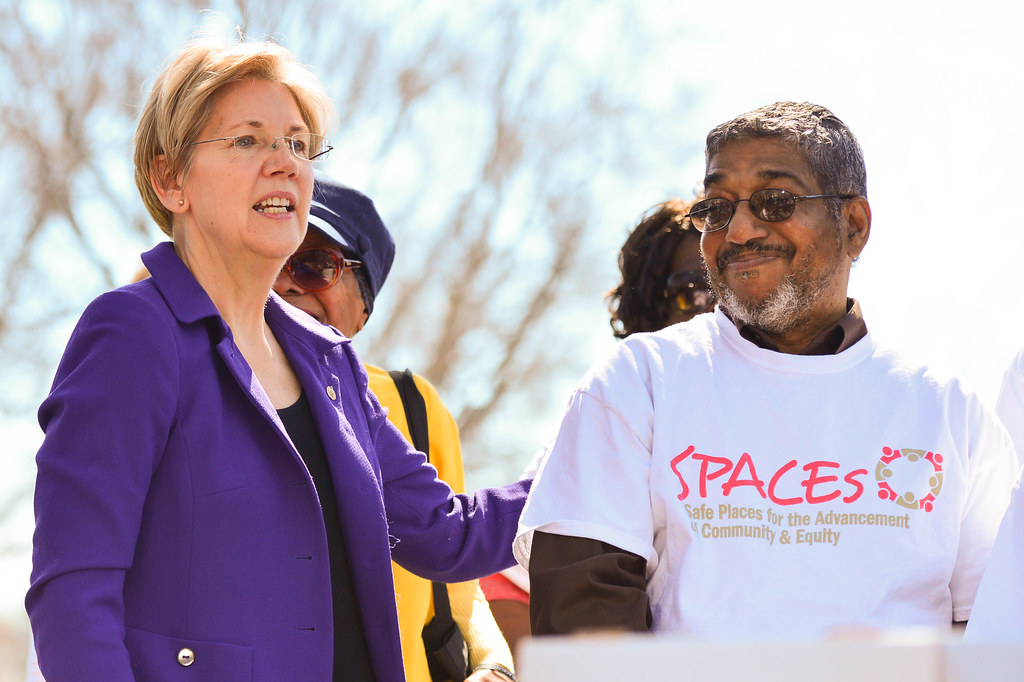Newsroom
News Coverage
February 05, 2026Warren slams Kennedy’s 'disregard for child welfare' amid immigration crackdown
Expanding her probes into Trump administration policies, Sen. Elizabeth Warren, D-Mass., is demanding answers from Health and Human Service Secretary Robert F. Kennedy Jr. about the impact of federal immigration surges on children's health. In a letter to Kennedy first obtained by ABC News, Warren, Sen. Angela Alsobrooks, and other congressional Democrats expressed concern that the health department is failing in its responsibility to protect the wellbeing of children. … Read the full story h… Continue Reading
February 05, 2026
Pentagon asked to probe SpaceX for potential Chinese ownership
Democratic U.S. senators on Thursday urged the Pentagon to conduct an immediate review of SpaceX amid allegations that Chinese investors have secretly acquired stakes in the closely held rocket maker, citing potential national security risks, according to a letter seen by Reuters. Senators Elizabeth Warren and Andy Kim wrote to Defense Secretary Pete Hegseth, expressing concern that Chinese investment in SpaceX could present "a national security threat, potentially jeopardizing key military, in… Continue Reading
February 04, 2026
Sen. Warren, others urge FTC, DOJ to scrutinize tech AI ‘acquihire’ deals for antitrust violations
Sens. Elizabeth Warren, Ron Wyden and Richard Blumenthal called on federal agencies to scrutinize AI deals from Nvidia, Meta and Google for potential antitrust violations, in a letter shared with CNBC. The three Democrats addressed the letter on Wednesday to the Federal Trade Commission and the Department of Justice, urging the agencies to review recent deals in which tech companies have paid to pluck specific employees from startups without acquiring the companies entirely. The senators charac… Continue Reading
Press Releases
February 13, 2026As Tax Filing Season Ramps Up, Warren, King, Lawmakers Press Trump Administration Over Decision to End Direct File
U.S. Senators Elizabeth Warren (D-Mass.), a member of the Senate Finance Committee, and Angus King (I-Maine) led their colleagues in pressing Treasury Secretary Scott Bessent and Internal Revenue Service (IRS) Chief of Taxpayer Services Ken Corbin on the Treasury Department’s decision to end Direct File, the IRS’s free online tax filing program, and instead promote Free File, a long-troubled partnership between private tax preparation companies and the IRS. Warren and King were joined by Senato… Continue Reading
February 13, 2026
ICYMI: At Hearing, Warren Criticizes Trump’s Use of Tariffs to Benefit Big Tech, Cost U.S. Manufacturing Jobs, Urges Stronger Worker Protections in USMCA Review
At a hearing of the Senate Finance Committee, U.S. Senator Elizabeth Warren (D-Mass.) called on the Trump Administration to use the upcoming joint review of the U.S.-Mexico-Canada Agreement (USMCA) to strengthen the agreement’s protections for American workers and consumers—rather than as an opportunity to secure giveaways for corporations and billionaires. President Trump has said that his across-the-board tariffs would create “millions and millions of new manufacturing jobs” and restore U.S. m… Continue Reading
February 13, 2026
Warren, Duckworth, Quigley, 40+ Lawmakers Sound Alarm on Trump's Immigration Agenda Hurting Families' Child Care Access, Raising Costs
U.S. Senators Elizabeth Warren (D-Mass.) and Tammy Duckworth (D-Ill.), along with Representative Mike Quigley (D-Ill.), led over 40 colleagues in pressing the Department of Health and Human Services’ (HHS) Administration for Children & Families (ACF) on how the Trump Administration’s immigration policies are shrinking the child care workforce and driving up costs for American families. This letter comes amid reports of ICE activity at and around child care facilities and growing staffing sho… Continue Reading
Op-eds
December 01, 2025Sen. Elizabeth Warren: Education Secretary Linda McMahon should resign
Shortly after she was sworn in, I invited Secretary of Education Linda McMahon to my office. I looked her dead in the eye and asked, “Now, I just want to be clear, do you think you can shut down the Department of Education?” She looked straight back at me and said, “No, I don’t have the legal authority to do that.” But here we are. … Read the full story here.… Continue Reading
September 22, 2025
‘The Game Is Rigged’: Elizabeth Warren on America’s Next Story
Senator Elizabeth Warren arrived on the political scene during the 2008 financial crisis with a very specific story about the economy — that it’s rigged against hardworking Americans. But it was Donald Trump who ran with that message all the way to the White House. In this episode, David Leonhardt, an editorial director in Times Opinion, talks to Senator Warren about her vision for a progressive economic story and the lessons Democrats need to learn going forward. … Read the full story here.… Continue Reading
May 29, 2025
Fox News: Sens Warren, Sheehy: Pentagon wastes billions with devastating repair rules. We’re working together to stop it
Our defense industrial base is stumbling. For years, the U.S. Department of Defense - under both Republicans and Democrats - failed to address one of the most fundamental issues within our military industrial complex, perverse incentives for contractors. But with the recently announced Army Transformation Initiative, Secretary of the Army Dan Driscoll and General Randy George are taking a major step to stand up for soldiers and strengthen our military readiness. Driscoll's plan will help end one… Continue Reading
Photos
November 30, 2017Senator Elizabeth Warren

March 09, 2016
SAVE Benefits Petition Delivery (March 2016)

Videos
February 13, 2026It's been a whole year of RFK Jr. doing stuff only Donald Trump would let him do.
February 13, 2026
Warren Criticizes Trump’s Use of Tariffs to Benefit Big Tech, Cost U.S. Manufacturing Jobs
February 12, 2026
Republicans in Congress tried to shovel billions to ICE without any restraints whatsoever AGAIN.
February 12, 2026
Warren: "Flat Wrong" for Landlords to Muzzle Families to Fix Mold, Pests, Sewage in Military Housing
Press Kit
Members of the media wishing to contact Senator Warren's press staff should email press@warren.senate.gov.